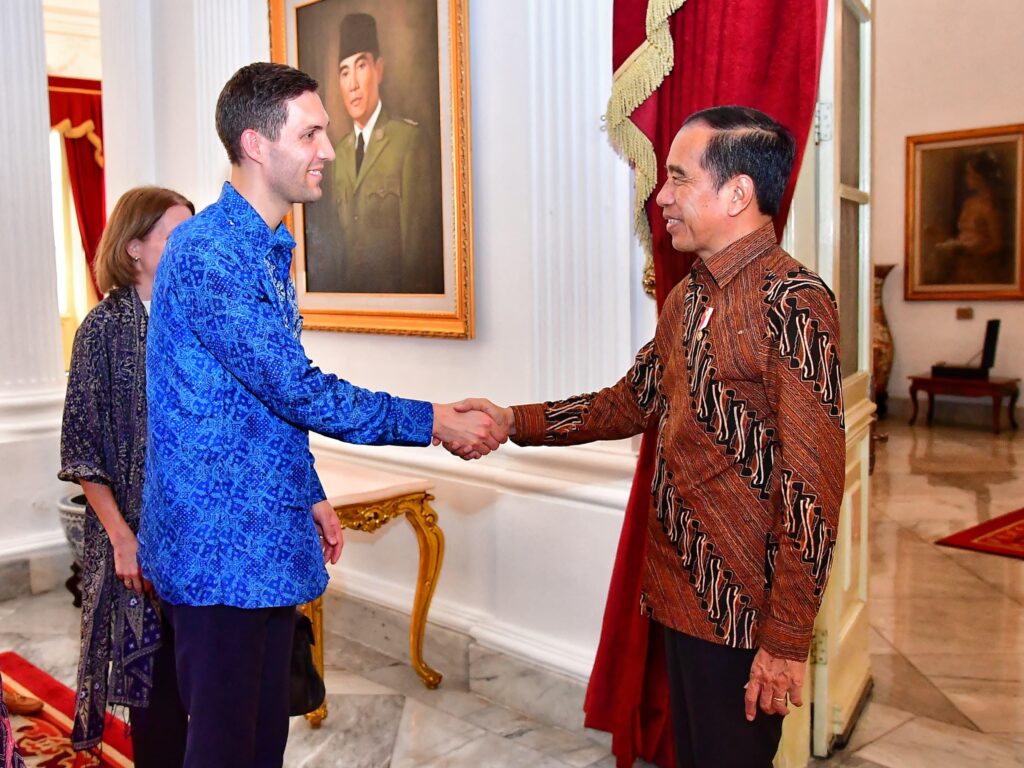 Photo: Government of Indonesia
Photo: Government of Indonesia
Deforestation in Indonesia has been at a record low in recent years. Minister of Climate and Environment, Andreas Bjelland Eriksen, visited Indonesia to follow up on the forest partnership between Norway and Indonesia. During his visit, he met with Indonesia’s President, the Minister of Environment and Forestry, and the Minister of Finance.
“It is crucial that we support the good work Indonesia is doing to protect the rainforest,” Minister of Climate and Environment, Andreas Bjelland Eriksen, stated.
Greets Indonesia’s President Jokowi in Jakarta
Minister of Climate and Environment Andreas Bjelland Eriksen met with Indonesia’s President Joko Widodo (Jokowi) in Jakarta to discuss the climate and forest cooperation between Norway and Indonesia.
Indonesia’s measures to reduce deforestation were also a topic in meetings with Minister of Environment and Forestry Siti Nurbaya, and Minister of Finance Sri Mulyani. In these meetings, Andreas Bjelland Eriksen emphasized that other countries in the world have much to learn from Indonesia.
“Indonesia’s success in reducing deforestation is the result of clear policies and effective climate measures. Indonesia has the world’s third-largest rainforest, and their results in slowing deforestation are of great significance in the global fight against climate change and biodiversity loss. We have much to learn by looking to Indonesia,” says Bjelland Eriksen.
During the Minister’s visit, he received a tour of the Law Enforcement Center at the Indonesian Ministry of Environment and Forestry in Jakarta, visited Gunung Leuser national park in North-Sumatra to see the orangutang and other biodiversity, and participated in mangrove rehabilitation efforts in Timur Laut Wildlife Reserve.
Norwegian support to Indonesian climate action
In the cooperation agreement between Indonesia and Norway, both partners collaborate in support of Indonesia’s Forestry and Other Land Use (FOLU) Net Sink 2030 Operational Plan. It outlines Indonesia’s ambitions for the forestry and other land use sector to become a net sink by more than 140 million tons CO2 by the end of this decade through reducing emissions from deforestation, forest degradation and carbon-rich peatlands, as well as absorbing more carbon through the restoration of forests, peatlands, and mangroves.

Norway’s support to Indonesia is result-based. This means that contributions to Indonesia take place after the country has reduced emissions and the results are verified by an independent third party. The Norwegian contributions support, among other things, protecting and restoring forest and peatland areas, protecting and rehabilitating mangrove forests, strengthening law enforcement and fire-fighting capacity, and recognizing local communities’ rights to manage forests through social forestry schemes.
From 2022 to today, Norway has disbursed a total of 156 million USD for Indonesia’s results in the form of reduced emissions from deforestation and forest degradation to the Indonesian Environment Fund. These are contributions for the forest years 2016 to 2019.
